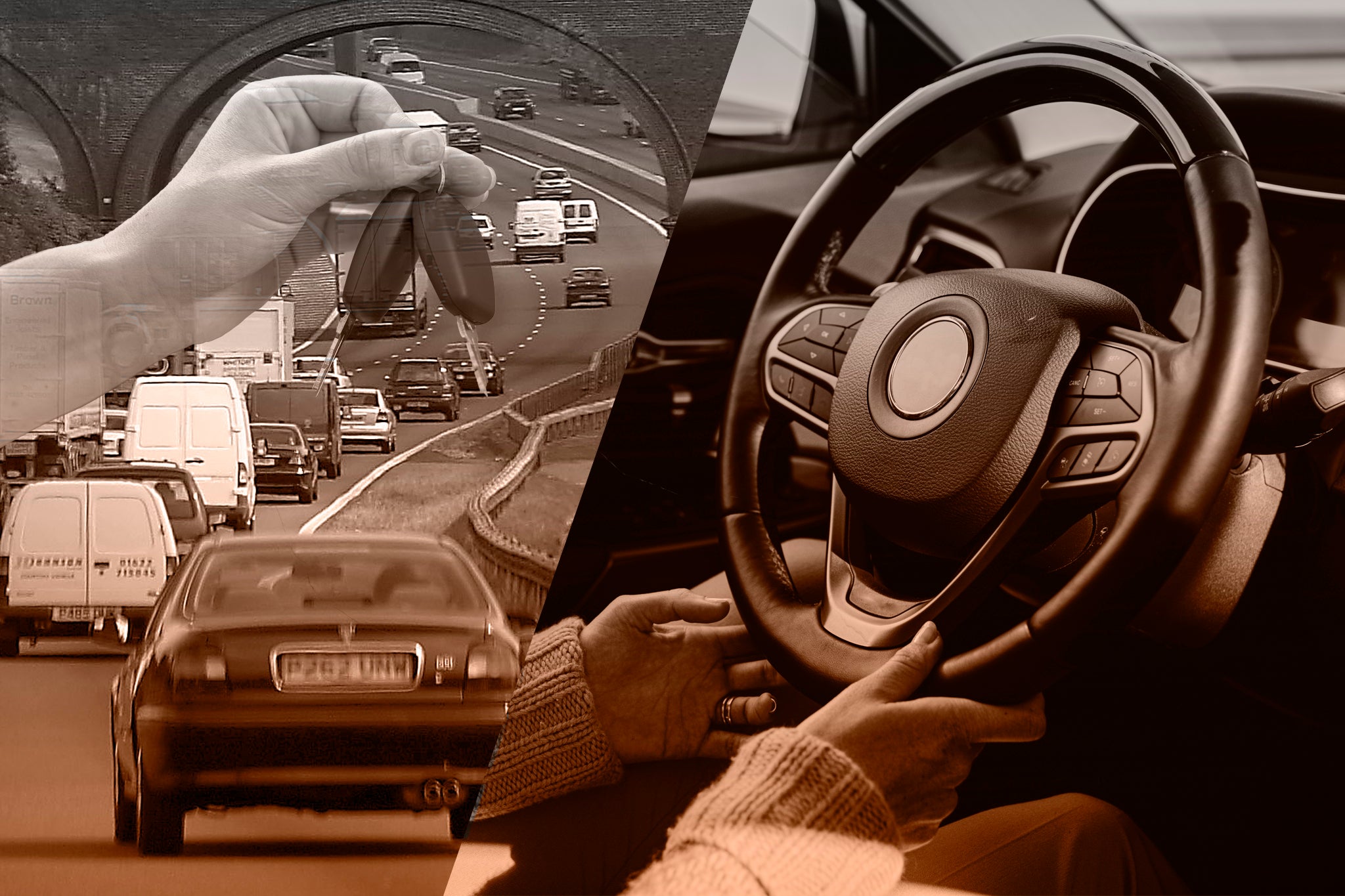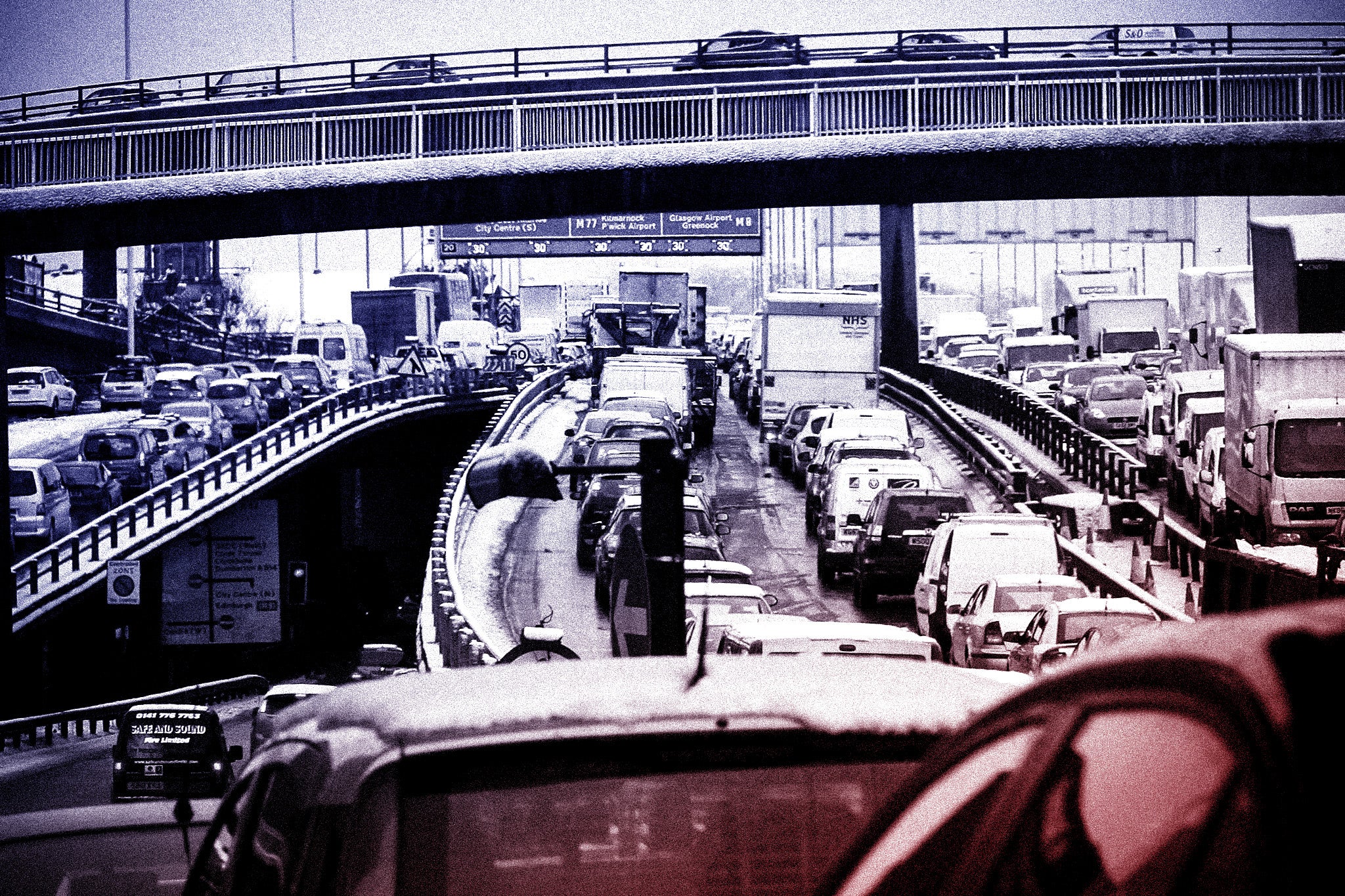Tens of thousands of drivers switch to third-party insurance in desperate bid to cut costs
Exclusive: Expert says the switch was risky and ‘deeply concerning’
Tens of thousands of drivers are increasing the excess on their policies or switching to third-party-only cover in a desperate bid to cut costs, The Independent can reveal.
The behaviour has been called “deeply concerning” by a leading consumer expert, while others warned that reducing insurance cover is risky and can turn out to be a “false economy”, making claims more expensive.
The revelation comes after The Independent revealed that premiums have rocketed by 48 per cent over the past year amid the rising costs of repairs and an increase in insurance fraud. Some drivers have resorted to selling their cars, while others are tweaking their policies to try to save money – but experts say the changes highlight a worrying trend.
Comparison websites told The Independent that tens of thousands of customers were increasing the amount of voluntary excess they pay. This optional amount is set by the customer when they take out the policy and is paid when making a claim on top of the compulsory excess, which is set by the insurer. Hiking the voluntary excess typically sees the cost of the policy fall.
Go.Compare said it had seen an increase in the number of people choosing a £500 voluntary excess, from 20 per cent in August 2022 to 23 per cent in August 2023.
And Confused.com said the average voluntary excess chosen by its customers had hit a record high. Two years ago, the average was £272, but it has now hit £300 – a 10 per cent increase.
Confused.com said the proportion of drivers opting for third-party cover, which only covers the damage caused to someone else’s vehicle, instead of comprehensive insurance, had also risen. For the past few years, 3 per cent of customers had bought third-party policies, but that has now risen to 4 per cent.

Martyn James, a consumer expert, said the figures were “deeply concerning” and represented a “worrying development”.
“Faced with soaring car insurance costs, thousands of motorists are changing their policies to make their premiums cheaper but this carries significant risks. If an accident were to happen, it would make the situation a lot more expensive for a driver if they had a higher excess, or if they had switched from a comprehensive to a third-party deal,” he said.
Get a free fractional share worth up to £100.
Capital at risk.
Terms and conditions apply.
ADVERTISEMENT
Get a free fractional share worth up to £100.
Capital at risk.
Terms and conditions apply.
ADVERTISEMENT
Louise Thomas, motoring expert at Confused.com car insurance, said the behaviour was “unsurprising” given car insurance premiums were rising rapidly, and motorists were looking for ways to save money.
“Our data shows that tens of thousands of drivers are considering lower-level cover such as third-party, or third-party fire and theft. Having a third-party policy in place means you aren’t covered for any claims against your own vehicle, so any damage or loss would have to come out of your own pocket,” she said.
Ms Thomas warned increasing voluntary excess could be a “high financial risk” for some drivers.
She said: “Increasing voluntary excess could make premiums more affordable in the long run. But if you increase this too much, it may make making a claim less affordable. For example, your compulsory excess will depend on a few factors, such as your age or driving experience.
“So, for some customers, this could be quite high. If you also increase your voluntary excess, the amount of total excess you pay when you claim could outweigh the claim cost itself. It’s always best to consider how much you may need to claim for your own vehicle, and ensure your total excess is affordable in comparison.”

For example, if you had a £700 bill for repairs to your car, but your compulsory excess was £250 and your voluntary excess was £500, you would not be able to claim for any of the cost on your insurance.
Graeme Trudgill, chief executive of the British Insurance Brokers’ Association (BIBA), agreed that taking a higher excess or reducing the level of cover can prove to be a “false economy”, making claims more expensive “should the worst happen”.
He added: “Alternative ways to reduce car insurance premiums include considering a telematics policy, checking whether you can reduce the mileage on your policy or removing business use if it isn’t needed, consider the benefits of advanced driver training as some insurers offer discounts for this, and look at whether you can increase vehicle security, which may have a beneficial impact on premiums.”
The price of car insurance has been steadily rising over the past year, due to inflation pushing up the costs of repairs and courtesy cars, and other factors such as insurance fraud. According to the consultancy Pearson Ham Group, costs continued to rise during the summer, with motorists quoted an average insurance price of £511 in August – a 4.8 per cent increase on the previous month.
Those with higher-value vehicles worth more than £10,000 suffered the biggest price hikes. Regionally, Scotland saw the largest premium increases, said Pearson Ham Group.
Insurance excesses can be confusing, with some drivers unsure about what level of excess they have on their policy.
Tom Banks, at Go.Compare, commented: “Our research revealed that 36 per cent of people didn’t know how much the excesses were on their insurance policies, which indicates excesses are somewhat of a mystery to some motorists. The same research also found that, for those who had made a claim on an insurance policy, 12 per cent said they didn’t know they’d have to pay the excess as part of that claim.”
Read more on third party insurance
Join our commenting forum
Join thought-provoking conversations, follow other Independent readers and see their replies
Comments
Bookmark popover
Removed from bookmarks